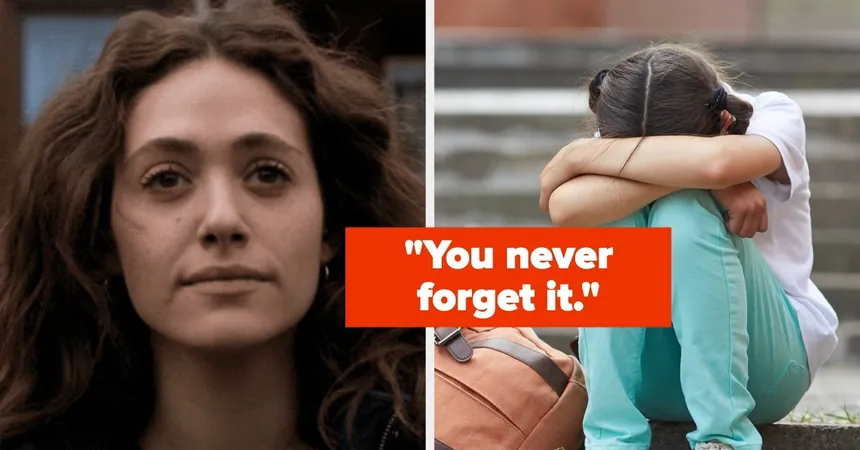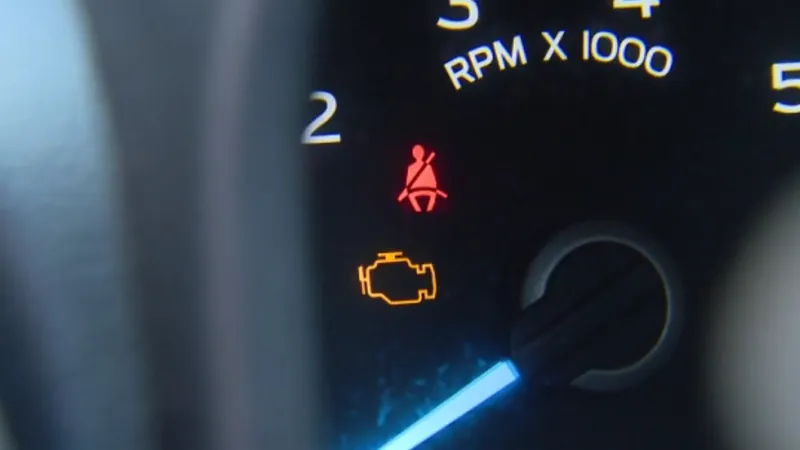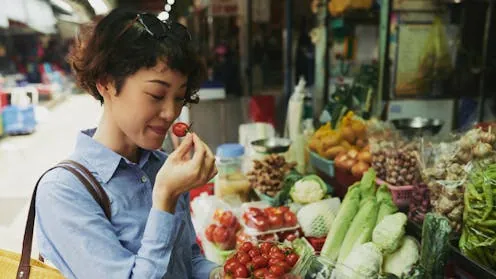
Growing Up Poor: Insights That Wealthy Kids Will Never Grasp
2025-09-22
Author: Emma
Experiences That Shape Us Forever
Childhood experiences have a profound impact, often resurfacing in unexpected ways as we grow older. Recently, individuals who experienced poverty shared their stories on Reddit, highlighting aspects of their upbringing that wealthy kids simply cannot comprehend. Here’s a glimpse into their world.
The Lasting Shadow of Poverty
Many shared that even after achieving financial stability, the scars of poverty never truly fade. In childhood, the distinction between comfort and struggle is stark, and it influences adulthood in ways that are often unrecognized by those who grew up with money.
Financial Dilemmas—The Daily Grind
One user noted the irony in being poor—spending money to save is a luxury not afforded to many. They reflected on the painful choices between buying cheaper, less reliable products or stretching a limited budget thin to make ends meet.
The Cost of Being Poor
Another contributor emphasized that poverty isn't just a childhood concern; it can reemerge later, revealing how expensive it is to be poor. The small fees—like overdraft charges or laundromat visits—add up, leading to a relentless cycle of financial strain.
The Empty Fridge Syndrome
For many, hunger often felt like a cruel joke; no matter how many times they checked the pantry or fridge, the food just wasn’t there. The act of simply opening the fridge became a painful reminder of scarcity.
Risks and Aspirations? Not an Option
Kids from low-income families often feel trapped, forced to prioritize stable jobs over passions. Financial insecurity stifles dreams, turning educational achievements into a necessary gamble!
The Burden of Appearance
Going to school in worn or ill-fitting clothes can be a source of deep shame. While some kids begin the year with new wardrobes, others are left to endure the gnawing feeling of being 'different'—a harsh label applied by peers.
Culinary Delights Were Few and Far Between
For many, eating out was a rare treat, often limited to fast food joints. Kids celebrated small victories like a meal at McDonald's, cherishing the accompanying toys for much longer than their wealthier peers.
The Weight of Financial Anxiety
The dread of unexpected expenses loomed over every decision—a flat tire or a minor health issue could spell disaster for families living paycheck to paycheck.
Struggling with Self-Expression
Many recalled the pressure to appear unaffected by their circumstances, leading to a lifetime habit of dismissing feelings and desires. The wish for status-symbol items may have been suppressed, yet the longing remained.
The Scarcity Mentality
Living in poverty taught many the value of not wasting anything. Old clothes were repurposed into cleaning rags, ensuring that every item had a worth far beyond its original intent.
Thrift Stores: More Than Just Shopping
For many, shopping at thrift stores was not a charming pastime but a necessity, honing skills of resourcefulness and resilience.
Learning to DIY—A Necessity
Fixing things or letting them stay broken became a choice between personal ingenuity and silent acceptance of hardship. Many learned to adapt, often developing hands-on skills out of sheer necessity.
Understanding What It Means to Be Poor
Observing parents balance finances became an early lesson in stress and anxiety, instilling a lifelong sense of uncertainty that accompanied many efforts.
The Weight of Judgement
Growing up poor often meant facing the judgement of peers and adults alike, whom would disregard the complexities behind every decision made or opportunity missed based on financial constraints.
Closure Through Healing
Navigating these childhood experiences can leave lasting impressions, yet they sometimes lead to healing in adulthood. Simple acts can awaken forgotten dreams—one user recounted a moment of unexpected joy when helping their child explore a childhood activity they had missed.
Life Lessons in Frugality
From carefully rationing household items to appreciating the little luxuries like paper towels, many learned to value every resource, creating habits that last a lifetime.
Onward and Upward
Through these struggles, individuals not only survived but shaped their identities. Many now find themselves striving to ensure that the next generation experiences a different reality.
What’s Your Take?
If you have your own experiences or thoughts to share, join the conversation—your story may resonate with others!









 Brasil (PT)
Brasil (PT)
 Canada (EN)
Canada (EN)
 Chile (ES)
Chile (ES)
 Česko (CS)
Česko (CS)
 대한민국 (KO)
대한민국 (KO)
 España (ES)
España (ES)
 France (FR)
France (FR)
 Hong Kong (EN)
Hong Kong (EN)
 Italia (IT)
Italia (IT)
 日本 (JA)
日本 (JA)
 Magyarország (HU)
Magyarország (HU)
 Norge (NO)
Norge (NO)
 Polska (PL)
Polska (PL)
 Schweiz (DE)
Schweiz (DE)
 Singapore (EN)
Singapore (EN)
 Sverige (SV)
Sverige (SV)
 Suomi (FI)
Suomi (FI)
 Türkiye (TR)
Türkiye (TR)
 الإمارات العربية المتحدة (AR)
الإمارات العربية المتحدة (AR)